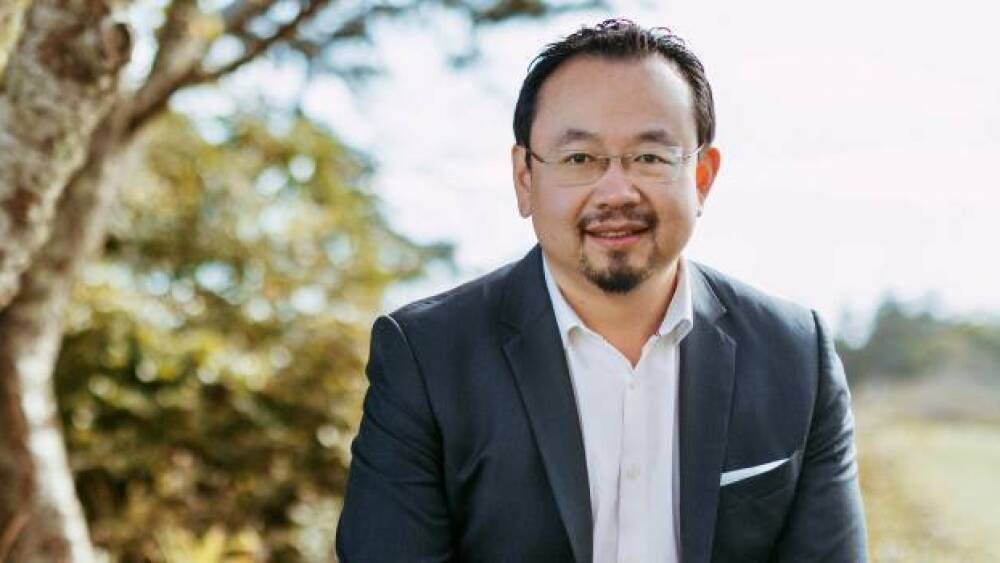The $80 million infusions from ATP will advance Marengo’s lead candidate, STAR0602, which aims to treat advanced and metastatic solid tumors.
Marengo CEO Dr. Zhen Su, M.D./couresty Marengo Therapeutics
The immuno-oncology space has a promising new player, as ATP announced the launch of Marengo Therapeutics. Headquartered in Cambridge, Mass., Marengo officially kicked off its mission Monday morning with $80 million in launch financing.
Marengo’s platform uniquely and selectively activates the immune system against cancer. Specifically, the company is developing novel antibodies that target (Vb) T cell receptor (TCR) variants, selectively boosting anti-tumor T cells and promoting long-term protection against a broad range of tumors.
“A patient’s own endogenous T cells are actually pretty powerful, and they probably don’t need a lot of extra help if you can activate them,” said Chief Executive Officer Dr. Zhen Su, M.D. Su joined Marengo in July following a successful six-year stint at Merck KGaA, where he served as SVP and head of global oncology, establishing a robust pipeline and leading the company to multiple drug approvals.
While PD1 inhibitors, in essence, remove the immune system’s break, allowing for the activation of some T cells, Su is thinking bigger. “Wouldn’t it be better if all the T cells have this turbocharge?” he proposed. So, Marengo focuses its attention on activating them in the right way rather than focusing on a specific tumor.
Marengo is enlisting a precision approach, zeroing in on a specific section of the TCR called variable beta (Vb) chain framework variants. Within most parts of the TCR, there are thousands or millions of antigen-specific responses, explained Andrew Bayliffe, Ph.D., Marengo’s CSO. Within the beta chain framework, there are only about 30.
“We’re chopping up the T cell compartment into chunks of 30,” Bayliffe said. “Initially, we’re going to use our antibodies to target these smaller, but still significant, chunks of T cells to expand them to mount a broad response to a range of tumor antigens so that they can clear tumors.”
Su said to envision a village of T cells, with a perfect blend of CD8 and CD4, mounting a fast and formidable immune response.
Marengo has deployed this approach into its proprietary Selective T Cell Activation Repertoire (STAR) antibody fusion platform, where one-half targets and activates the T cell. At the same time, the other half brings in additional elements such as antibody costimulatory factors that allow it to shape the response further.
“These antibodies bind in an exquisitely T cell-specific manner, so the things that we’re adding only go to T cells and not anywhere else,” Bayliffe explained.
Due to dysfunctional T cell responses, existing immuno-oncology therapies can help less than one-third of patients achieve a durable response.
“That’s why we’ve lost some patients, which is painful for me as a physician to look at. So, we need something faster and more potent from the get-go, rather than waiting for the brake to remove and slowly get the car started,” Su said.
He shared that Marengo’s technology has generated the highly desired T cell phenotype called central memory cells, enabling long-term protection and durability of response in animal models. Marengo’s approach, he added, builds on the successes and knowledge base of immuno-oncology while overcoming some of its challenges.
The $80 million infusion from ATP will advance Marengo’s lead candidate, STAR0602, which aims to treat advanced and metastatic solid tumors. Su expects the asset to enter the clinic in Q4 of 2022.
“As a clinician, it’s personal to me to, in the holiday season, provide hope for one family. It’s a very meaningful goal for my team, and everyone’s working towards it,” Su said. In addition, the funds will go toward broadening the potential of the STAR platform.
“ATP created Marengo Therapeutics to realize the potential of an exciting scientific discovery we have been incubating for several years,” said Dr. Seth Harrison, M.D., founder and managing partner at ATP. “Priming specific T cells to fight cancer could pave the way to an entirely new class of much-needed effective and durable immunotherapies.”
Featured Jobs on BioSpace






